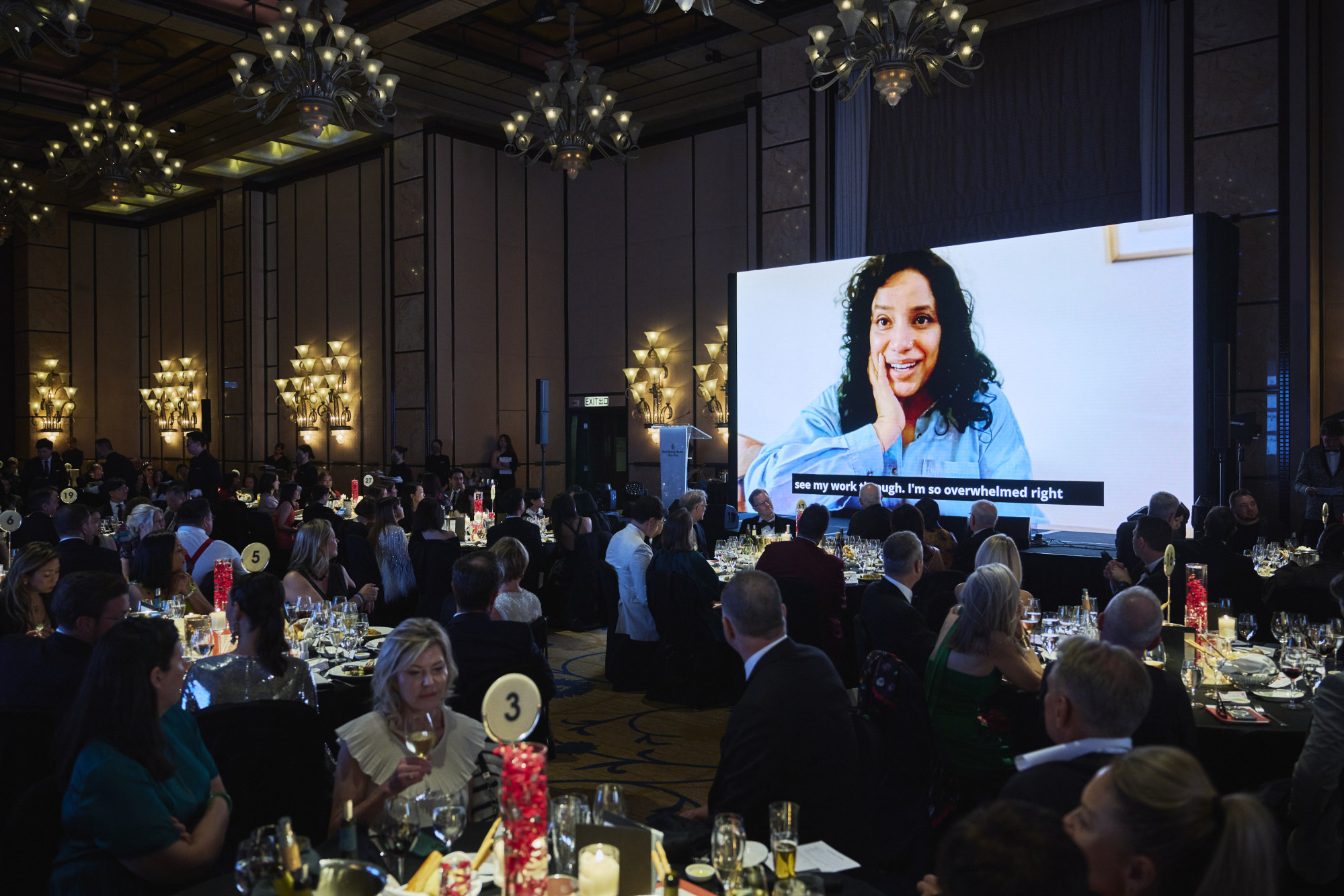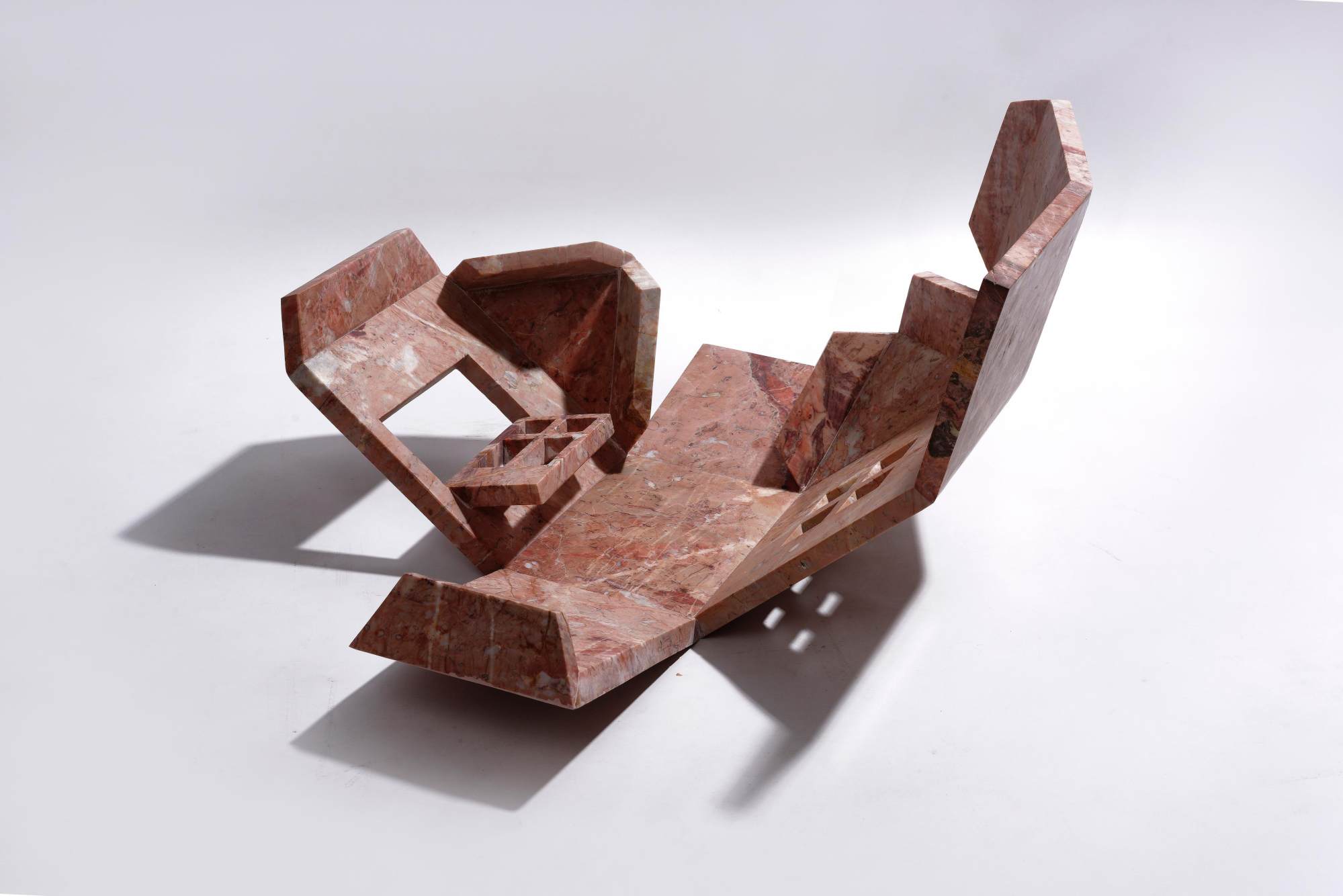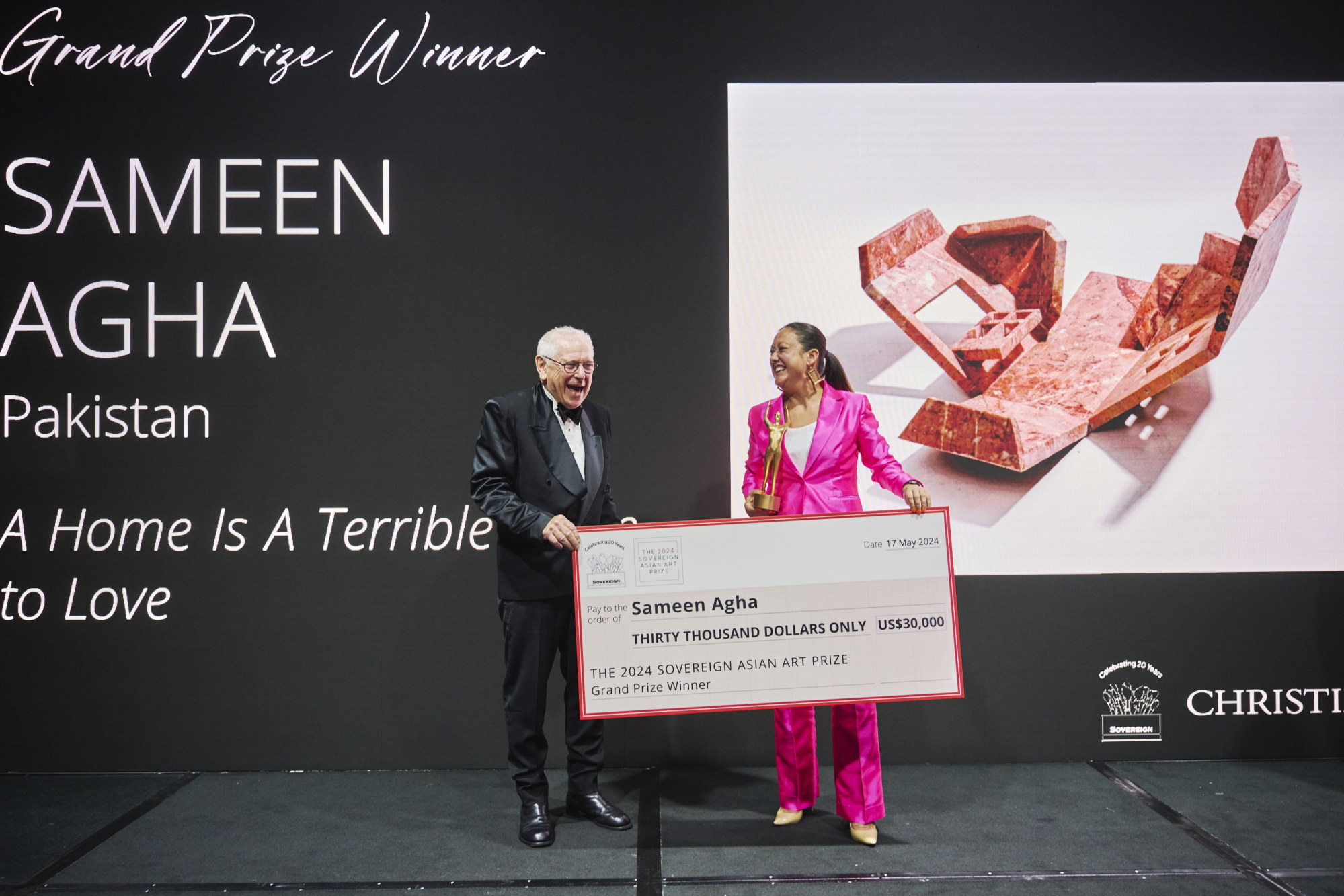The winner of the 2024 Sovereign Asian Art Prize, announced last month, is Pakistani artist Sameen Agha, whose marble sculpture A Home is a Terrible Place to Love took the prize.
The artwork resembles a toy house that has had its walls all opened up, like a piece of flat-pack furniture in the process of being assembled. The blood-red marble, run through with veins of white and pale yellow, resembles the colour of flesh and bruises.
“I have been working quite a lot with marble,” says Agha, who was born in Lahore in 1992. “As I was walking around the markets to find the type of marble I wanted to use, I encountered this red type, which is both hard and quite brittle, and I fell in love with the material.”
The work, which won her US$30,000 from the Sovereign Art Foundation, is a commentary on domestic violence against women, a topic very close to Agha’s heart and an all too common occurrence, both in Pakistan and the rest of the world.

“This material truly resonates with me,” she says. “It could look like a brutally abused material. It has this brittle quality, which doesn’t make it easy to carve as it keeps chipping down.”
The contrast between strength and vulnerability is a poignant symbol that would resonate with any woman, she says, while the juxtaposition of the material with the childlike form is meant to unsettle.
“It is a very innocent shape paired with a grotesque material,” she says, adding that she sees a lot of tension in the piece. “It has a sense of incompleteness that reminds me of how a lot of childhood dreams are left incomplete, as they never come true.”

Agha, who graduated in 2016 from the National College of Arts in Lahore, started out as a painter. Influenced by the Mughal art commonly seen in her city of birth, she became interested in creating three-dimensional effects on paper and canvas, and later expanded to making 3D forms.
Her wider “A Home is a Terrible Place to Love” series includes miniature drawings and white marble sculptures of window panels used to frame paintings of delicate periwinkles, a common flower in Pakistan that “hints at preserving memories”, she says.
In another, a white marble tombstone is used to frame a small painting of what at first glance appears to be something like a bear trap – but is in fact a set of slanted red bricks assembled in a circle.
“You would usually find these brick circles used as fences […] reminding me of boundaries, how in order to keep relationships healthy we need to build or maintain boundaries, too. And once you experience violation of these boundaries it feels like a death of a certain emotion or that relationship altogether.”
She has two solo shows coming up: one at Indigo+Madder gallery in London, this month, and another next year at Micki Meng gallery in New York.
The Sovereign Asian Art Prize, initiated in 2003, was presented at the foundation’s charity gala dinner at the Four Seasons Hotel Hong Kong, in Central, last month.

Local artist Michelle Fung was awarded the Vogue Hong Kong Women’s Art Prize for her wood carving Red Bean Stalk, while Demetrio Dela Cruz, known as Demet, from the Philippines, won the Public Vote Prize for PPE, Paint Palette Emulation, an oil painting that employs hyperrealism and trompe l’oeil techniques.
Some of the shortlisted works were put up for auction, earning a total of US$200,000, which was split between the artists and the Sovereign Art Foundation’s Make It Better programme.
Founded in 2013, the programme organises expressive arts workshops for children in Hong Kong with special educational needs. The workshops are conducted by trained art therapists, allowing a direct link between established artists and children who can benefit from the healing power of making art.
This year’s Sovereign Asian Art Prize saw a board of 55 independent art professionals nominate artists from 15 countries and territories across Asia-Pacific.
The finalists were shortlisted by a judging panel led by writer and curator David Elliott and which included Billy Tang, executive director and curator of Para Site in Hong Kong; Marian Pastor Roces, an independent curator, critic and policy analyst; and previous winners Debbie Han and Parul Gupta.

